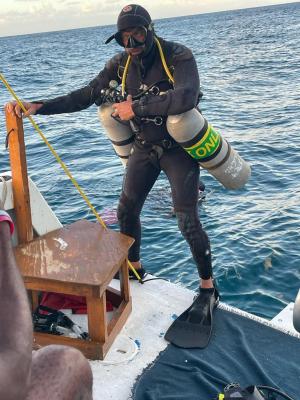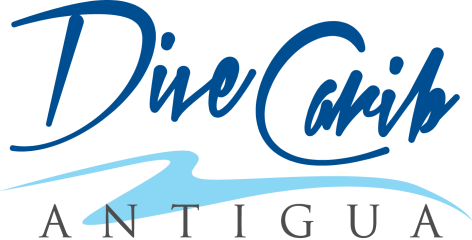5 ways to be more eco-friendly while visiting Antigua and Barbuda
5 Ways To Be More Eco-friendly While Visiting Antigua and Barbuda
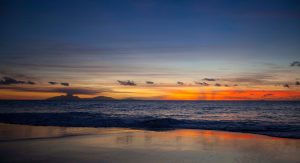
1. Bring A Reusable Water Bottle
Don’t encourage the manufacturing of unnecessary single-use plastics. Plastic bottles are one of the most common sources of plastic pollution and microplastics into the ocean. Millions of animals are killed by plastics every year. Microplastics have been found in more than 100 aquatic species, including fish, shrimp, and mussels destined for our dinner plates.
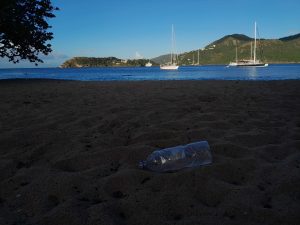
The majority of plastics are not recycled; instead, they’re most commonly sent to landfills or incinerators, are shipped overseas, or are dumped and open-burned. We are a small twin-island nation, which needs to alleviate as many external stressors as possible. If you must buy plastic water bottles while here in Antigua and Barbuda, why not opt for a larger bottle, which can then be decanted into your reusable bottle.
On property with us at the National Sailing Academy is a filtered water station, where you will be more then welcome to fill your bottle. Many other hotels on the island now offer filling stations; be sure to ask them before booking.
Check out the best water bottle options for 2022.
2. Bring Reef-Safe Sunscreen
Over 6,000 tons of skin care products enter coral reefs from tourist activities alone, and many of those sunscreens’, cosmetics’, and soaps’ ingredients are highly toxic to corals as well as other marine life.
Don’t use sunscreens containing oxybenzone, avobenzone, butylparaben, octinoxate or 4-methylbenzylidine camphor if you plan to go anywhere near the water; even a small amount can cause coral bleaching.
According to NOAA, no sunblock is scientifically-proven to be reef safe, but mineral sunscreens made with non-nano titanium oxide or zinc oxide do not appear to harm corals.
Because chemical processes are used to create sunscreen, even mineral-based ones. The best option is to cover up rather than slather on. Wearing a long-sleeved rashvest with UV protection is safer than any sunscreen, and you don’t have to remember to reapply. For those areas where you must use sunscreen (nose, ears, hands etc), opt for reef-friendly, biodegradable sunscreen.
Check out PADI’s choices for best reef-safe sunscreen, as well as DiveInn’s top 11 best reef-safe sunblocks in 2022.
3. Choose Eco-friendly Tour Operators/Training Schools (e.g. Green Fins certified members)
Make sure they’re doing their part to reduce their environmental impact, e.g. ‘responsible garbage’ policies with safe collection and disposal of hazardous waste, using eco-friendly cleaning products, minimising single-use plastics and recycling where possible, and no littering.
The following should be true of any marine operator:
- Provide thorough briefings and enforce a strict ‘no-touch‘, ‘no-take‘, ‘no feeding‘ policy.
- Always use mooring buoys, and only ever anchor in an emergency.
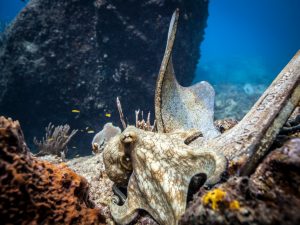
- Know and tell guests about environmental rules and marine protected areas.
- Participate in regular beach and underwater clean-ups.
- Prohibit the collection, sale, and display, of marine life.
4. Refuse Single-Use Items
Single-use items often end up in our environment, harming wildlife, waterways and oceans, whether it be directly through littering, or indirectly through wind dispersal (i.e. your litter is blown away from the trash/rubbish bin or open landfill site), or animal activity (i.e. animals such as cats, tear the trash/rubbish bags open, or seabirds collect the trash from the open landfill site).
What’s better than reusing or recycling an item? Refusing it.
Ask yourself, do you really need it? And if the answer is no, then avoid it.
e.g. do you NEED that straw? do you NEED that stirrer? do you NEED that plastic fork? do you NEED that coffee cup? do you NEED that balloon? do you NEED that shopping bag?
With all of the amazing food on offer in Antigua, it can be tempting to stop and purchase takeaway food, but why not stop, sit down, take in the local atmosphere, and avoid using disposable containers and utensils. You’re on holiday, so slow down and opt for the eat-in option.
Many of the vendors and restaurants in Antigua and Barbuda offer ‘biodegradable’ or ‘compostable’ plastics, but these simply do not break down in your garden compost, or in water (the ocean); what’s actually needed is a commercial grade composting facility. At these facilities, they are broken down into very small pieces, then heated at incredibly high temperatures to allow them to biodegrade. It’s a very specific process that most people in the world don’t have access to, including us here in Antigua and Barbuda. To give you an idea, according to a recent study and analysis by Biocycle, the total confirmed number of full-scale food waste composting facilities in the U.S. is only 185.
If you think it’s likely that you will want to eat on the go, and sample food from various vendors across the twin-island nation, then another option would be to travel with a reusable food container (e.g. stainless steel bento box, stainless steel lunchboxes), as well as reusable travel utensils (e.g. foldable fork and spoon, stainless steel spork).
5. Eat and Consume Locally Sourced Food and Products
Reduce your carbon footprint, support the local economy, and eat fresher produce by choosing to eat locally sourced food (e.g. Colesome Farmer’s Market, Hall Valley Farm).
Ask your restaurant/vendor where their produce comes from!
Look out for small local vendors offering locally sourced products e.g. fruit, soaps, jams, sauces, paintings, coasters etc.
Why not try a guilt-free seafood by purchasing lionfish. Lionfish (red and common; P. volitans and P. miles) have been invasive to the Caribbean since the early 1990’s, and here in Antigua and Barbuda for more than a decade. Help keep their numbers down to protect our reefs and native species, by creating a demand for these delicious fish! Request lionfish at the restaurant/supermarket. Here at DiveCarib we regularly spear lionfish to protect our dive sites, and often host lionfish BBQ’s so that people can experience how great they taste!





